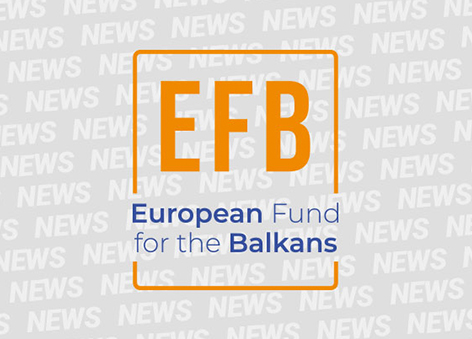
 Speaking at the latest EFB/Gallup Learn@Lunch event on “Governance and corruption – breaking the cycle” in Brussels, Dušan Reljić, Research Associate at the German Institute for International and Security Affairs, argued that the Balkans was suffering as labour migration was not feasible; called on the EU to permit migration (from the Balkans to the Union) in order to reduce corruption (that was caused by people having no other choice).
Speaking at the latest EFB/Gallup Learn@Lunch event on “Governance and corruption – breaking the cycle” in Brussels, Dušan Reljić, Research Associate at the German Institute for International and Security Affairs, argued that the Balkans was suffering as labour migration was not feasible; called on the EU to permit migration (from the Balkans to the Union) in order to reduce corruption (that was caused by people having no other choice).
After Gallup researcher Andrzej Pyrka introduced the event, EFB Programme Manager Igor Bandović gave an overview of the Fund’s work in the region. Presenting the latest results from polls in the Western Balkans, Robert Manchin, Managing Director of Gallup Europe, argued that corruption was not just blocking investment in the Balkans, but was also having a negative impact on the lives of everyday citizens.
The data showed that corruption was one of the top three issues in the Balkans (unemployment – 70%, standard of living – 37%, corruption – 30%). In Albania, Croatia and Kosovo, residents were more concerned about corruption than they were about the standard of living. With data showing that 90% or more respondents in Croatia, Serbia and BiH perceived business (in general) to be corrupt, Robert Manchin argued that the governmental structure itself was fragile.
However, looking at some of the EU Member States close to the Balkans, data showed that reported rates incidents of bribery were high in Romania (36%) and Greece (14%), whereas in Croatia it was only on 8%.
A key point for Manchin was that trust in the judiciary was practically non-existent: 21% or less of respondents had a lot of trust in the judiciary, across the Western Balkans (from 30% in Croatia to 51% in Montenegro). Confidence in the EU was much higher than in national governments in Albania and Kosovo and, in both countries, there was a strong wish that EU accession would reduce the level of corruption.
Reljić gave three explanations for the current situation in the Balkans:
- Since the fall of the Berlin Wall, the Balkans has become a link in the chain in the transport of heroin, from Afghanistan to the West; Reljić described this as part of “economic globalisation”.
- Following the break-up of Yugoslavia, the nineties saw the creation of new countries and borders and an increasing demand for illicit goods and services (e.g. weapons and sex-for-sale, the latter was also available for peacekeepers in the region).
- In parallel, economies were “privatised” in a lawless society and the people dealing in illicit goods and services became the legal owners of the “new economy”; at the end of the “bloody shuffle of the deck of cards”, no one knew where the (large) amounts of money had originated.
Based on his analysis, Reljić argued that the socio-political situation in the Balkans meant that while EU accession remained the goal, a “new political structure” was required. However, change was gradual (he added that GDP levels were currently 40%-60% of the pre-war figures) and Reljić also reasoned that only nations such as Canada and the Nordic countries had governments and political structures that were beyond reproach.
Question and Answer session
In response to a question about how the situation could be improved, Reljić said there was incremental growth and that the situation was not stagnant. He also reasoned that one reason for an increased perception that corruption was rising was greater freedom in the media.
Justin Lyle of Transparency International asked how such “incremental growth” could be achieved, especially at the EU level. Reljić felt that the best instrument was to increase employment in the region as, for example, in Kosovo, 30,000 people were joining the job market annually. A thriving EU economy was also seen to be vital to the health of the Western Balkans as Manchin explained that one in three households needed a well-functioning western economy to survive. Reljić added that remittances counted for 25%-30% of GDP in Albania and Kosovo; Greece and Italy were dependent on such “foreign” labour.
Lyle agreed that greater employment would help the situation in the Balkans but he wanted to insist on the role of civil society and the free media. With the EU being a major player in the region, he wanted closer monitoring of the situation so that reforms could be specifically targeted. Lyle felt this could be concrete way of reducing corruption.






